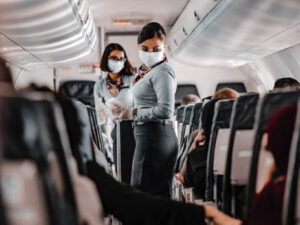Brexit Information
As we are sure you are all aware, the UK is scheduled to officially leave the EU next week, and this will bring with it new rules for trade, travel and living in the UK. We have outlined some information regarding this transition below, for your information;
Travel
 If you are travelling to the EU from the UK after the 1 January 2021 then check out the Government website “Visit Europe from 1 January 2021”. This page tells you how to prepare if you’re planning on travelling to Europe from 1 January 2021. It will be updated if anything changes.
If you are travelling to the EU from the UK after the 1 January 2021 then check out the Government website “Visit Europe from 1 January 2021”. This page tells you how to prepare if you’re planning on travelling to Europe from 1 January 2021. It will be updated if anything changes.
See: https://www.gov.uk/visit-europe-1-january-2021
Trading
If you haven’t made your business preparations, check out the Brexit transition website:
See: https://www.gov.uk/transition
If you trade with the EU and have not yet made preparations then here is a summary of actions to take:
- If you move goods to or from the EU register (unless you already have) for an Economic Operator Registration and Identification (EORI) number – https://www.gov.uk/eori
- Consider an agent to help with completing import/export forms –www.export.org.uk
- If you export goods see the step by step guide here:
https://www.gov.uk/prepare-to-export-from-great-britain-from-january-2021 - Export rules are specific by sector so review “The transition period ends in December” Government website. There you can get a personalised list of actions and can subscribe for email updates: https://www.gov.uk/transition
- The VAT reporting rules for EU sales can be found here: https://www.gov.uk/guidance/vat-how-to-report-your-eu-sales
- If you import goods then see the guidance “Starting to import”: https://www.gov.uk/starting-to-import/moving-goods-from-eu-countries
- There is a step by step guide on importing here: https://www.gov.uk/prepare-to-import-to-great-britain-from-january-2021
- Guidance on paying VAT on imports can be found here: https://www.gov.uk/guidance/vat-imports-acquisitions-and-purchases-from-abroad
- Review HMRC YouTube videos on international trade here: https://www.gov.uk/guidance/help-and-support-for-international-trade
What Action Has the Government Taken to Date?
New Legislation
Post-Brexit legislation preparing the UK for life outside EU institutions next year have been drafted or are being reviewed by Parliament. The immigration Bill received Royal Assent last week. This ends freedom of movement on 31 December and replaces it with a new points-based system.
If your business relies on EU or other non UK workers then check out the transitional arrangements to 30 June 2021 and the new rules here: https://www.gov.uk/settled-status-eu-citizens-families
Last week the Agricultural Bill was debated and eventually passed through Parliament. This removes the Common Agricultural Policy and replaces it with new UK supports for farmers. The Government agreed that farmers will receive the same level of support as they currently do through the Common Agricultural Policy until 2024, while the current system of subsidies is gradually phased out.
See: https://services.parliament.uk/Bills/2019-21/agriculture.html
We can expect to see further progress to bring existing EU laws and rules into UK legislation before the end of the transition period. For example, the Financial Services Bill was introduced on the 21 October to maintain the UK’s regulatory standards and openness to international markets.
This Bill is the first step in shaping a regulatory framework for the UK’s financial services sector outside of the EU.
See: https://www.gov.uk/government/news/financial-services-bill-introduced-today
In Summary
We must all be prepared for changes in the way we travel and trade with Europe. Even if there is a free trade deal the key thing to remember is that there will be a UK border which will mean paperwork and border checks.
Businesses that trade with the EU must get familiar with customs declarations as these will be essential for accounting for VAT.
Depending on what contracts a business has with its customers in Europe, it may have to factor in that goods could take longer to get there, meaning extra costs and administration.
In the short term there will probably be delays at the border, so it is important businesses map out supply chains and think about how to do things as efficiently as practicable post transition.
Please talk to us about your plans post transition, we can assist in a number of ways including helping you account for VAT, looking at your accounting systems and pointing you in the direction of specialists to assist with the Trading administration.

